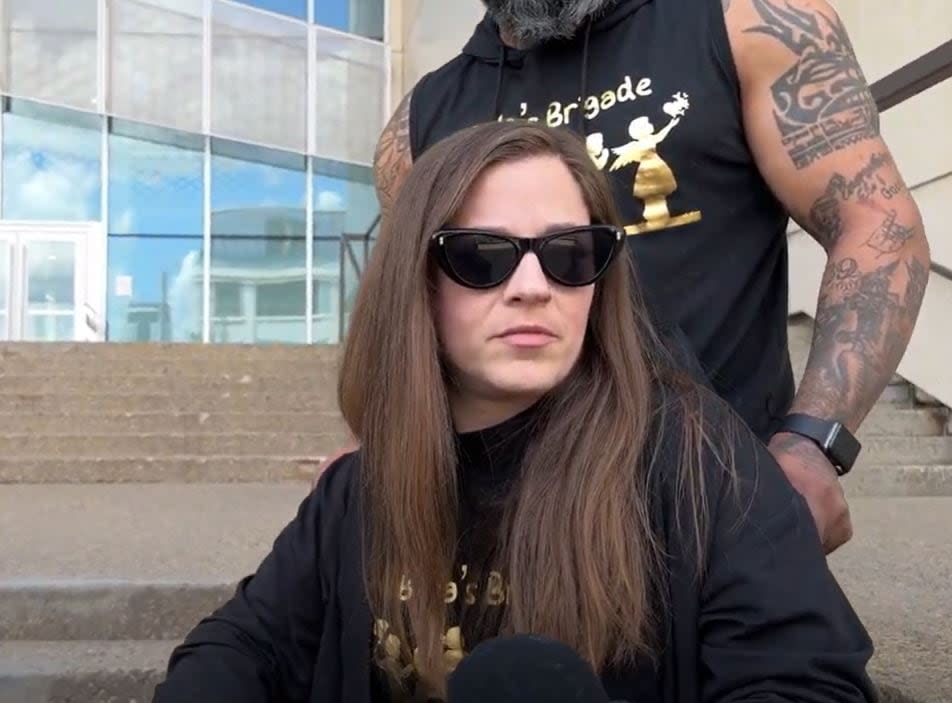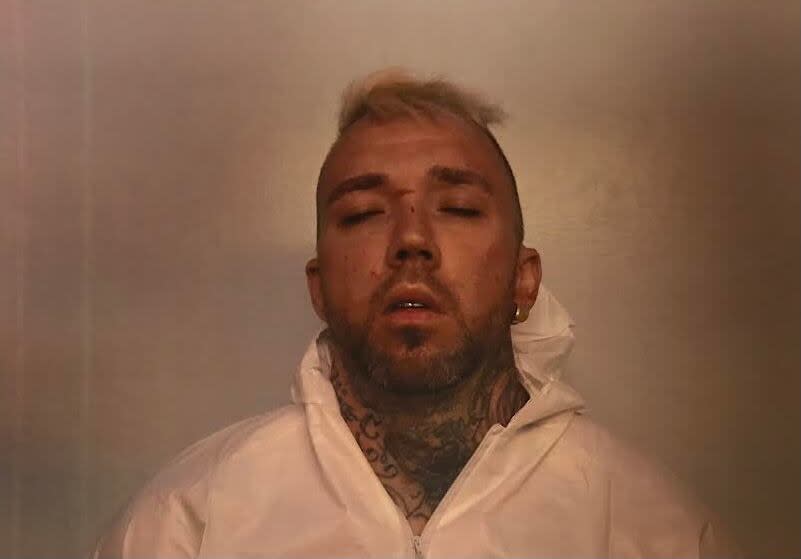Edmonton man gets life sentence, 15 years parole ineligibility in killing of 7-year-old girl
WARNING: This story contains graphic details of violence.
The Edmonton man who murdered seven-year-old Bella Desrosiers in front of her mother and little sister will be ineligible for parole for 15 years.
Friday's sentencing comes more than four years after David Moss, in a state of psychosis, stabbed the young girl and dragged her from her bedroom while her mother, Melissa Francis, was tucking her into bed.
Moss was found guilty of second-degree murder last year for the May 18, 2020, killing.
Court of King's Bench Justice Steven Mandziuk said his sentence must consider the level of violence and planning in Moss's prolonged attack on a vulnerable child.
"There is no sentence that will undo the pain that the offender's actions have caused," he said.
"This was a shocking, horrific and sickening crime that has scarred many people in our community and destroyed the lives of Bella's family."
Second-degree murder comes with an automatic life sentence and a parole ineligibility period of 10 to 25 years. Moss's sentence is closer to his defence lawyer's submission to set 13 years of parole ineligibility — the Crown had asked for 20 to 22 years, near the maximum allowed.
Mandziuk stressed that the 15-year ineligibility period he imposed shouldn't be viewed as a guarantee Moss will get out of prison after that time, or that he may ever be released.
"Only when the offender satisfies the Parole Board of Canada that he is not a danger to the community will he be released," he said.

Desrosiers's mother said Friday she was hoping for a longer parole ineligibility period.
But her focus now is setting up more supports for people who have lost family members to homicide. She's fundraising for a new initiative to help people connect, called the Butterfly Hearts retreat.
"I'll never have any type of closure," Francis said.
"We'll always have grief and trauma, but it's always thrown in our face with these types of things … It's been really hard to grieve her. So I'm just kind of looking forward to giving space to that grief, now that everything's over."
With the trial process finally done, Francis said she and her family will keep honouring Bella together.
"Spending some time in the garden outside, where she liked best."
Moss made 'deliberate decision': judge
Moss was in the home that night because Francis was trying to help him. Court heard she knew him in high school, but got to know him better through his work as a tattoo artist — he gave her a tattoo to commemorate her husband Ben Desrosiers, who took his own life in 2019.
On the day of the murder, Francis was worried Moss was also suicidal. Not wanting another family to go through the kind of loss she had experienced, she was planning to drive him to the hospital after putting her children to sleep.
Moss, 38, sought to be declared not criminally responsible for the killing, arguing he was suffering from a mental disorder and couldn't understand his actions were wrong. Mandziuk instead accepted expert evidence that Moss's state of psychosis was due to his heavy cannabis use at the time.

The judge found that although Moss had no reason to kill Desrosiers outside a "delusional belief system" he was under, he was still aware of what he was doing, and capable of having the intent to commit murder.
Mandziuk said Friday these are also factors that play into his sentencing.
The judge found that Moss has underlying mental health conditions, and a history of experiencing and witnessing abuse during his childhood, that are connected to his substance use as an adult.
Moss knew he could become paranoid or erratic when he used cannabis, but it hadn't previously made him violent or put him in a state of psychosis.
"[Moss's] drug-induced psychosis contributed to the commission of the offence. His psychotic beliefs are what led him to kill Bella," Mandziuk said.
"I must also consider that the offender made a deliberate decision to kill Bella, sought out a weapon with which to kill her, and was undeterred in ensuring that Bella died, even in the face of Melissa's attempts to stop him and Bella's pleas for him to stop."
Mandziuk accepted that Moss is remorseful and "ridden with anguish" about the crime.
But he also noted a lack of insight, with Moss continuing to attribute his actions to a mental illness rather than his cannabis use.
Moss sat in the prisoner's box with his head bowed throughout much of Friday's proceedings. After standing up to be sentenced, court sheriffs led him from the room.

